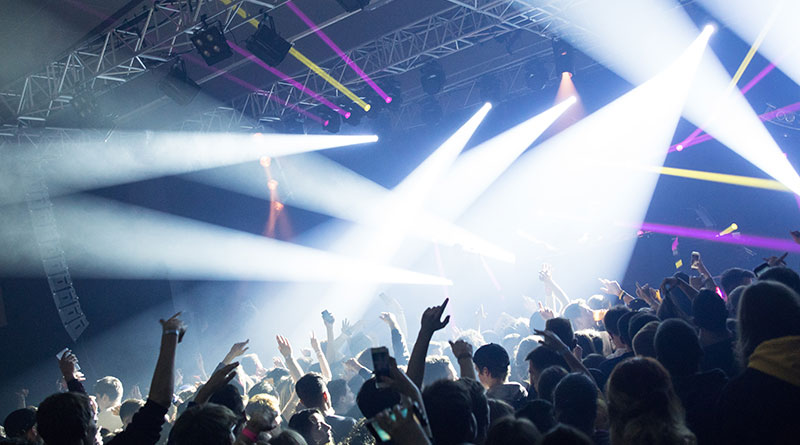Survey Reveals Late-Night Leisure Sector is Back with a Bang

The British public appetite for nights is as high as ever, according to the latest REKOM Night Index.
In spite of the devastating impact of Covid-19, including the closure of nightclubs for 16 months, the average consumer spend, frequency and duration of nights out remains robust, based on a three-year comparison.
Brits are spending £68.03 when on a night out (March 2019: £68.68), with the night lasting 4 hours and 17 minutes on average (March 2019: 4 hours 35 minutes). We are going out exactly as often as we did pre-pandemic, with people reporting 1.2 times a week for March 2022 and 2019 alike.
Commissioned by REKOM UK, the UK’s largest specialist nightclub and late-night bar operator, the REKOM Night Index is a quarterly report that tracks consumer habits relating to the UK’s night-time economy. REKOM UK was created in 2020 when The Deltic Group was acquired by the REKOM Group, Europe’s leading nightlife group.
Unsurprisingly, following the extended periods of Covid-19 related restrictions on clubs and bars, two thirds (66.3%) of those polled said they are keen to go out more to those venues that were shut for a long period because of the pandemic. This figure jumps to more than 80% amongst 18–21-year-olds. Not only that, more than a third (33.4%) of Brits – and just under half (44.6%) of 18-24-year-olds – feel that they were unfairly restricted from going out during Covid-19 and could not wait to get back to clubs and bars after missing out during the pandemic.
The return of the night out signals a return to a normal social life. Spending time with friends (65.9%) was revealed to be the most popular reason for going on a night out, with the next being to relieve stress (23.6%) and to enjoy shared experiences (23.1%). Interestingly, going out to meet a partner was lower down the priority list, with just 5.7% saying this was important.
People are clearly enthusiastic about the importance of the night out culture, with more than half of those surveyed (56.4%) agreeing that going to nightclubs is an integral part of growing up. Furthermore, two fifths (40.1%) said that going out to nightclubs plays a crucial role in developing social skills as they move into adulthood. More than a third of consumers polled (36.7%) said that going out to nightclubs is helpful in learning to socialise as an adult in a controlled environment.
Peter Marks, Chairman of Rekom UK commented: “We’re so pleased to be welcoming our guests back to late night venues and to return to doing what we do best, and it’s fantastic to see such positive public perception around going out, something that is fully reflected by the strong business performance we have seen over the past few months.
People have clearly missed going out. Nightclubs are an important outlet for people to enjoy themselves, and we can see this with spend, frequency and duration of a night out all bouncing back to pre-pandemic levels or better.
What stood out to me more than anything is the strong positive reaction people have expressed to the night out – whether that’s enthusiasm for returning to pre-pandemic social lives for the younger generation, or the sense of nostalgia from those that might not be going as frequently as they used to.
There’s no doubt that the late-night leisure sector is back in full force and people are ready to enjoy themselves.”
Other highlights from the report include:
• Regarding spend breakdown on a night out, the amount spent on pre-drinks increased very slightly on March 2019 figures, to £11.42 (from £11.31). o Spend on in-venue drinks increased to £19.56 (March 2019: £19.25).
• Spend on food decreased most, by 3.1%, to £15.70.
• 44.4% say they are much more enthusiastic about going out to venues like clubs and festivals because they missed out on this during the Covid-19 pandemic. o This rises to 60.7% of 18-24 year olds and 47.4% of 25-34 year olds.
• 68.0% said that their priorities, considerations and behaviours when going on a late night out have changed since the pandemic.
• Respondents said that the largest influence on a night out was distance from home (20.4%). o 19.0% said type of music was most important, and 17.6% said affordable pricing.
• Women are more cost conscious, with 18.7% agreeing that this is the most important factor compared to 16.2% of men.
